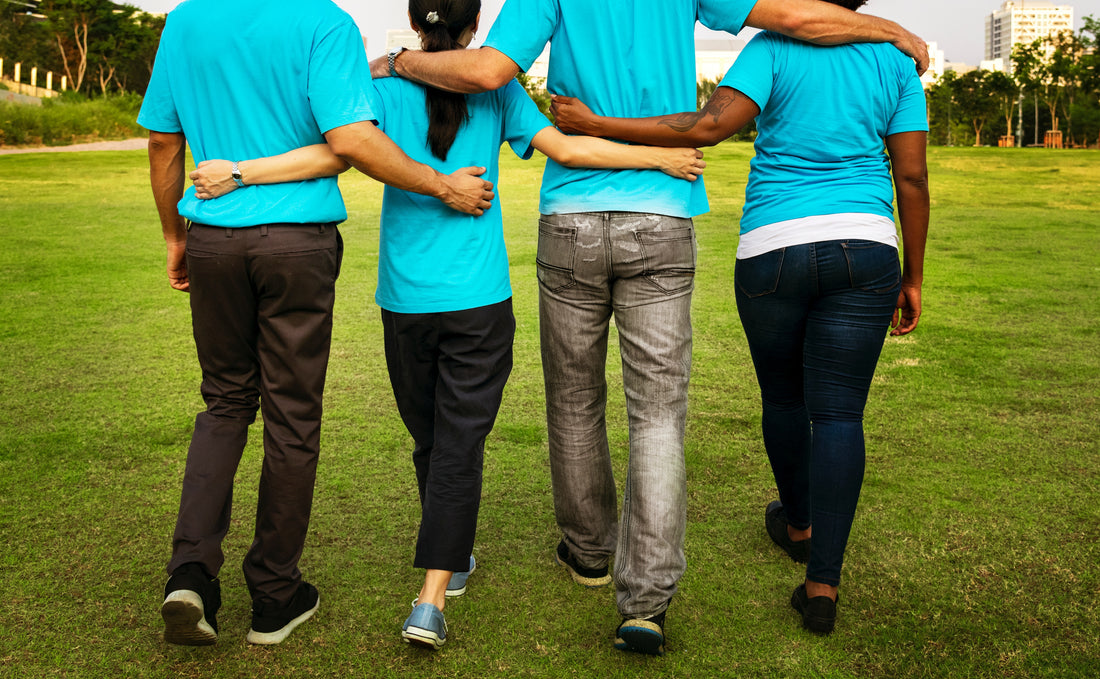
Every addict has a family
Share
Every addict has a family.
5 Tips to help families cope
By Helena Bester
Introduction
The most recent National Survey on Drug Use and Health (NSDUH) in the US was done in 2013.
Almost 68, 000 people responded to the survey. According to these statistics, drug use in the US is on the rise.
Other studies show that an estimated 9.5% of the American population had used an illegal drug just during the past month.
There are families in the background.
Every single addict has a family. It is rare that family will not root for their loved one's recovery.
Some informal research shows that every addict has a community of about six people ready to rise to the challenge of helping him or her.
Questions and concerns
Dealing with addiction is not something you can plan for. Families are often at a loss about what to do. They need support in dealing with addiction and the addict. They usually have many questions.
This blog tries to give ideas of how a family can look after themselves, but also help the addict.
- Knowledge is power
Healing
Scientists are daily learning more about drug abuse. Addiction stems from changes in brain chemistry and is not due to the addict’s weakness or obstinacy.
A family that reads and research will find that it will help them let go of anger and of blaming themselves. The focus can now be on healing.
- Connecting with others
A shared burden becomes lighter.
Dealing with addiction in a close family member is stressful. Not only do families not know what to do, but often they also cannot talk to each other.
This is where a trusted program such as Al-Anon can help. (There are lots of others, too.) These programs provide a safe space and a soft place to fall. Families find that their outlook on life improves, that they have a better quality of life and that they can deal better with the addict on a day-to-day basis. They feel less isolated.
Family therapy sessions
Families often do not have the tools to assist an addict. They don’t even know how to help themselves! A support group for families can help a lot.
Family therapy programs are usually designed around the idea of breaking down the barriers of distrust and guilt. The aim is to create a family unit that will support one another through thick and thin.
But, success does not happen overnight. Families should keep at it and continue to go to sessions.
- Schedule a private therapy session
A private therapy session will help you to unload and talk openly.
Addiction can cause deep wounds. A family member can have personal issues that he/she must deal with before he/she can be ready to help the addict actively.
A private session can help you to work on assertiveness, anger management or how to let go of co-dependent behaviors.
- Build on the work done in family therapy
Eat together
Look for ways to connect as a family outside of therapy. Eating together once a day can be soothing and provide everyone with an opportunity to share what they are worried about.
Exercise as a family
Exercise release dopamine and an overall feel-good. Brisk exercise sessions can help families, and it is not difficult to do.
Relax and do something you enjoy
A hobby can help boost your mental health, but will also give you a sense of worth.
In the doing of repetitive actions such as sanding a piece of wood or knitting, calming chemicals are released in the brain. A hobby that produces something tangible can bring great comfort amid addiction.
- Be part of the solution, not the problem.
People are often not clued up on addiction. The stigma remains that an addict is weak and that family members should just ignore the person. "Tough love" is the answer.
Be part of changing people’s perceptions.
Speak up about the truth and share that knowledge you gain from research, support groups, and therapy sessions. Tell others about your own family's journey and shift other's conversation about addiction.
Conclusion
It is a beautiful road.
The path to recovery is actually filled with love, hope and lots of help. You just need to scratch a bit off the surface and find some of the resources in your community.
Largest Heart supports family involvement! Together, a family can help an addict heal.
Resources
https://www.drugabuse.gov/publications/drugfacts/nationwide-trends
https://www.therecoveryvillage.com/family-friend-portal/tips-help-cope/